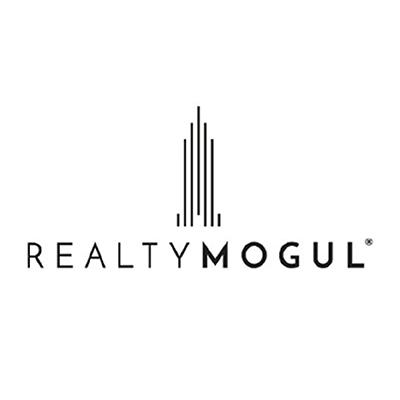Invest in individual commercial real estate properties or REITs
Invest in private assets
Investments
$25,000
The minimum investment on RealtyMogul typically ranges from $25,000 to $35,000, depending on the specific investment offering.
Investments
$10
Fundrise allows a minimum investment of $10 for taxable accounts and $1,000 for IRAs.
Moderate Risk
3/5
Investing through RealtyMogul entails risks like market volatility, economic shifts, and property-specific issues. Investments are illiquid and there's potential for loss of capital.
Moderate Risk
3/5
Investing with Fundrise involves risks such as limited liquidity, potential modifications to the share repurchase program, market volatility affecting asset values, the possibility of total investment loss, and regulatory changes impacting operations.
Minimum Liquidity
1/5
Investments through RealtyMogul are illiquid, as they are private real estate transactions not traded on public exchanges, and therefore cannot be easily sold or traded. Investors should have a long-term commitment and not expect to resell quickly.
Minimum Liquidity
1/5
Fundrise offers liquidity through its share repurchase program, allowing investors to redeem shares quarterly with no penalties or costs.
Receive new reviews from Fintorial
High Return
15.0 %
Investors on RealtyMogul can expect an overall realized IRR of 20.8% and an overall target IRR of 15.0%. Cash-on-cash returns, IRR, and equity multiples are key metrics provided for each deal.
Low Return
4.81 %
Investors on Fundrise can expect returns through dividends and appreciation, with an average income return of 4.81% over 7 years.
Long-term Investment
3-10 years
Investments on RealtyMogul generally have a hold period ranging from 3 to 10 years, depending on the individual property's business plan and associated financing.
Long-term Investment
5+ years
Fundrise is designed for long-term investments, ideally for a period of 5 or more years, due to its focus on strategies aimed at long-term return potential.
Who can invest
United States
RealtyMogul allows both accredited and non-accredited investors to use its platform. However, only accredited investors can participate in private placement offerings, while both categories of investors may invest in RealtyMogul's managed REITs, subject to certain legal limitations.
Who can invest
United States
To be eligible to invest with Fundrise, individuals must meet several criteria: they must be at least 18 years old, have permanent residency in the United States, possess a valid U.S. tax ID, and file taxes in the U.S. The platform is open to both accredited and non-accredited investors.
Moderate Volatility
3/5
Commercial real estate assets on RealtyMogul can be volatile, with values affected by economic shifts, interest rates, and market trends. This can lead to fluctuations in investment value and potential financial losses.
Moderate Volatility
3/5
Assets on the Fundrise platform, such as private real estate and venture capital, typically show lower volatility compared to public stocks and bonds, due to less frequent valuation updates and reduced exposure to daily market swings.
Regulation and audits
SEC Regulated
RealtyMogul is regulated by the SEC and must adhere to strict disclosure and filing requirements. The platform's offerings are subject to regular audits to ensure compliance with financial reporting and regulatory standards.
Regulation and audits
SEC Regulated
Fundrise is regulated by the SEC and must comply with strict reporting, disclosure, and operational standards. It undergoes regular independent audits to verify financial accuracy, legal compliance, and the effectiveness of its internal controls, ensuring transparency and integrity in its operations for investor protection.
Insurance
Yes
RealtyMogul's properties are insured against physical damage and loss, but insurance might not cover all risks, such as market volatility or economic downturns. Insurance is a risk mitigation tool, not a guarantee against all potential losses.
Insurance
No
Investments on Fundrise, including real estate and alternative assets, are not insured by the FDIC or any other government agency, exposing investors to the risk of loss without insurance protection.
Payouts
Dividends
Investors may receive quarterly distributions, which are not guaranteed in timing or amount and depend on the performance of the investment and terms set by the managing real estate company.
Payouts
Dividends
Dividends are paid quarterly, based on income from portfolio projects, and can be either reinvested or cashed out. Appreciation comes from increases in the value of the investment, reflected in the net asset value (NAV) of shares. Returns start accruing after investment settlement, typically within 5 business days, and can be tracked on the Investor Dashboard.
Withdrawals
Investors on RealtyMogul can expect to receive their money back either through property sales or distributions during the investment's hold period, as outlined in the offering documents. The investments are illiquid, so exact timing of returns is not guaranteed.
Withdrawals
To withdraw funds from Fundrise, investors must submit a liquidation request. Liquidations are reviewed quarterly for most funds, with a waiting period for the eFund. No penalty is charged for liquidating shares from the Flagship, Income, or Innovation Funds, but eREIT and eFund shares held for less than five years may incur a penalty. Liquidations are processed on a "First in, first out" basis.
Extra Fees
Yes
Investors indirectly pay fees for each investment, which vary by the offering and cover administrative, legal, and management costs. Fee details are disclosed for each opportunity on the platform.
Extra Fees
Yes
Fundrise charges a 0.15% annual advisory fee, a 0.85% management fee for real estate funds, and a 1.85% management fee for the Innovation Fund. Early liquidation of eREIT or eFund shares before 5 years incurs a 1% penalty.
Taxes
Tax Form
RealtyMogul issues Schedule K-1 forms for individual deals and Form 1099s for REIT investments, made accessible via the investor's dashboard. Dividends from REITs historically have not been qualified for preferential tax rates.
Taxes
Tax Form
Fundrise investors can expect Form 1099-DIV for eREITs or interval funds with distributions over $10, Schedule K-1 for eFund shares, and Form 1099-B for liquidated shares. Tax documents are issued at the end of January for 1099-DIVs and mid-March for K-1s, available on the investor dashboard. Multiple funds in a portfolio may result in receiving multiple tax forms.

